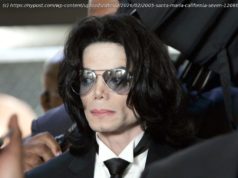The prickly street preacher who became the ‘father of Christian rock.’
R ock-star biographies can be vacuous affairs: fun but formulaic recitations of record deals, albums, and concerts spiced up (if you’re lucky) with “before he was famous” anecdotes and little-known details from the artist’s life. But not all such books—and not all rock stars—are cut from the same cloth. Take for instance Gregory Alan Thornbury’s new biography of Jesus-rock godfather Larry Norman.
Thornbury, the former chancellor of King’s College in Manhattan and a scholar noted for his books of popular theology, might seem an odd guy to put out a book on the OG Christian rocker. But he has the zeal of a superfan and the long view of an intellectual historian, resulting in a book that’s both a worthy panegyric and an important meditation on the developments that shaped evangelicalism in the last decades of the 20th century. Thornbury portrays Norman as an enormously talented and prolific singer, guitarist, and songwriter who never managed to solve the central tension of his life: how to reconcile his role as an entertainer, which won him thousands of fans, with his calling to spread the gospel of Christ.
The 1970s was a convulsive decade in American Christianity. “Traditional Christian religion stood for ‘fixed’ values, politically, culturally, and sexually,” Thornbury writes. “It was hidebound, out of step with the times, and square.” (The more things change . .) Meanwhile, the broader culture “valued personal fulfillment and self-expression above all.” An aspiring musician in Los Angeles, Larry Norman acquired a loyal following with idiosyncratic songs scolding the institutional church for its failure of Christian witness—particularly for not addressing the nation’s social problems. Consider his fiery “Right Here in America”:
But Norman’s songs also frequently witnessed directly to the people he saw as the lost sheep of rock ’n’ roll, casting the gospel as an antidote to the poisons of modern secular life. One of his most enduring songs, “Why Don’t You Look into Jesus?,” was written as a response to the self-destruction he’d seen from other rock artists, notably Janis Joplin. “Take a look at what you’ve done to yourself / Why don’t you put the bottle back on the shelf? / Yellow fingers from your cigarettes / Your hands are shakin’ while your body sweats. / Why don’t you look into Jesus? He’s got the answer.”
At the same time, Norman wrestled with doubts about whether entertaining concertgoers was a worthwhile endeavor for the kingdom of God: At several points, he retreated from his recording career to throw himself into the more classical evangelical pursuits of street preaching and church-planting. Perhaps this also explains the bizarre dynamic of his typical concerts: “Norman would often quit playing if people started clapping during his songs or singing along. His main interest was forcing his audience toward self-examination, so if people were having fun at his concert, Larry thought, they probably weren’t thinking hard enough.”
Norman’s critique of problems within the church, like the critiques of many other cultural crusaders of the ’70s, often blurred into invective against institutional religion itself. “To me religion’s not real, it’s all based on superstition, guilt, and ritual,” he told an interviewer in 1973. “I don’t have to go to church every day. I go to church in my heart. I don’t have to kneel or bow, my spirit has been humbled and bowed.” The great irony of Norman’s career, Thornbury tells us, was that the Christian-rock genre for which he paved the way quickly became just the kind of institutional juggernaut he had picked up a guitar to protest in the first place. “Christian contemporary music” simply became the new idiom through which record labels could cash in on religious fervor and evangelicals could create socially relevant “worship music.”
Still, Larry Norman’s story provides a ray of optimism. Another recent book, Randall J. Stephens’s The Devil’s Music: How Christians Inspired, Condemned, and Embraced Rock ’n’ Roll, depicts the evangelical foray into rock as an attempt to recover lost cultural power and as a cash cow for record labels. At least Thornbury’s book reminds us that such cynical considerations were not the whole picture: There was also a glint of something real that Norman and other pioneers of Christian rock strove for. “These are troubled days,” he sang in 1977’s “If I Were a Singer.” “I want to live my life for you and show the way.”






